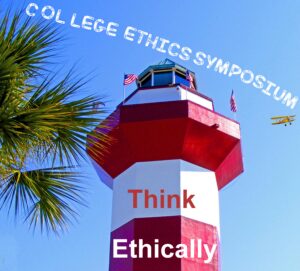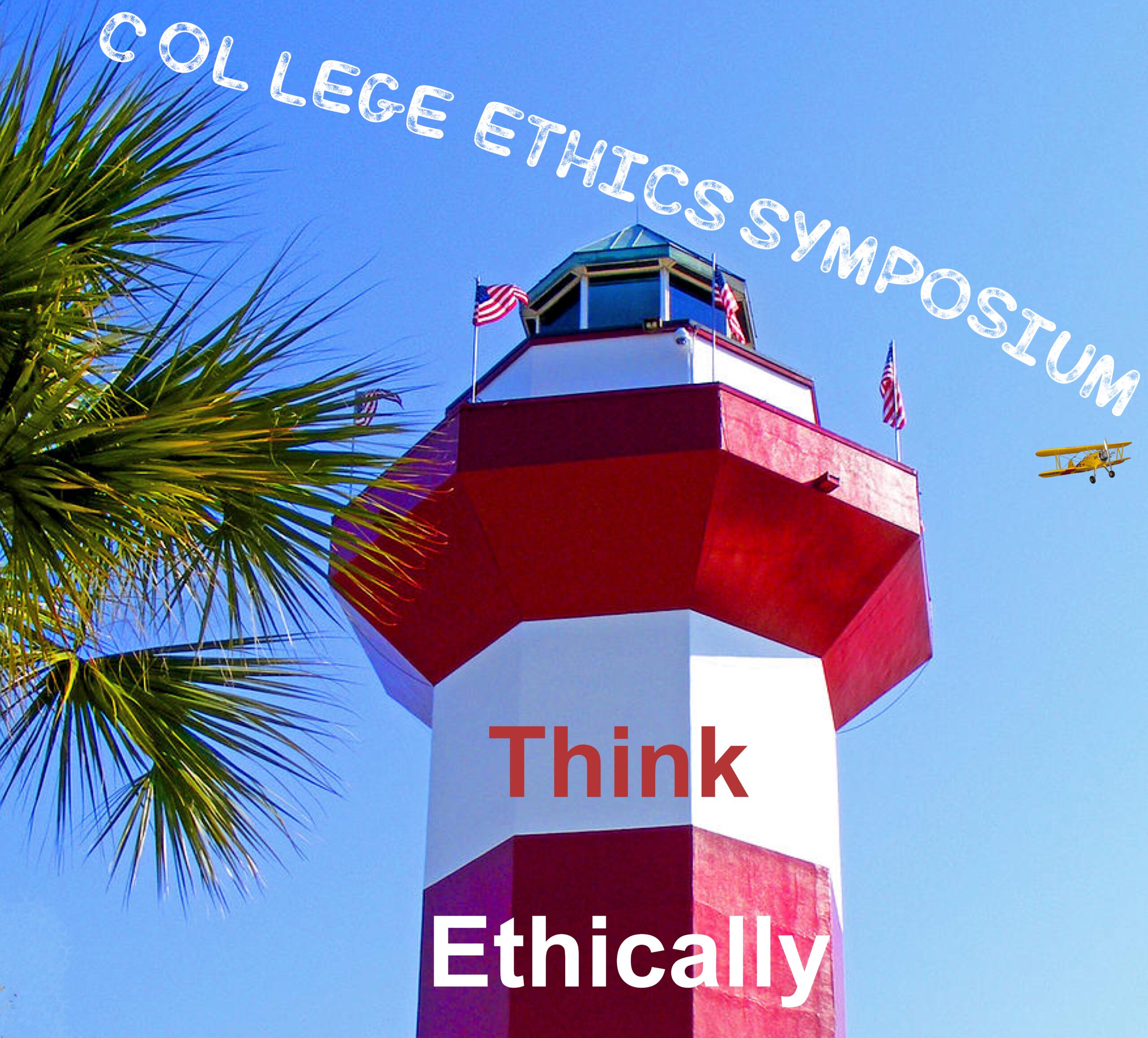Case #10 - Ethics and the "#Me Too" Movement
“In the new code of laws which I suppose it will be necessary for you to make, I desire you would remember the ladies and be more generous and favorable to them than your ancestors. Do not put such unlimited power into the hands of husbands. Remember, all men would be tyrants if they could. If particular care and attention is not paid to the ladies, we are determined to foment a revolution, and will not hold ourselves bound by any laws in which we have no voice or representation.”
~ Abigail Adams to John Adams, 1777
In 2006 civil rights activist and sexual assault survivor Tarana Burke coined to term “#Me Too” in hope of encouraging and supporting other victims of sexual abuse and assault. The Chicago Tribune (12/4/18) wrote, “Since sexual misconduct allegations exploded against movie mogul Harvey Weinstein in October 2017, dozens of women have accused other high-profile men. What started as a hash tag aimed at giving victims a voice, has turned into lawsuits filed against some of Hollywood’s most powerful players and ethics investigations in the case of some accused elected officials.” Since 2017 the hash tag is used in more than 85 nations; and accusations go far beyond the entertainment industry and the political arena – women (and some men) are speaking out in areas of sports, religion, education (especially at the collegiate level), medicine, industry and corporate life. The issues raised are complex and challenge some long accepted social norms and behaviors; they confront individual ethical decisions and behaviors as well as social structures, legal protections and remedies. We touched on one aspect of this in “Case #5: Personal Relations in the Company Environment and with Company Peers.”
One problem in discussing the “#Me Too Movement” is its scope; sexual harassment raises different issues than do sexual assault or rape. This is also the issue of degree: sexual harassment may be words or actions, may be unwanted flirtation or physical familiarity, and may carry with it implied threats or promises to the victim. Many of these behaviors are not considered criminal. Sexual assault and rape on the other hand are violent acts and are crimes. Finally, sexual crimes are the most unreported; Department of Justice figures indicate that only 33% of sexual assaults are reported to police. Feelings of shame and guilt, fear for one’s reputation, fear of retribution, lack of trust that victims will be treated fairly, intimidation tactics by perpetrators and traditional social norms regarding sexuality all contribute to this underreporting. The fact that in Beaufort County (where Hilton Head is located) there has been only once conviction for sexual assault since 2010 seems to confirm victims’ fear and distrust of “the system”.
News headlines in 2017 and 2018 declared that the “#Me Too Movement” has brought America (and to a lesser extent the world) to “a time of reckoning” for a long history of sexual misconduct, harassment, abuse and violence. Here are a few ethical questions to discuss:
- Should public figures such as politicians and celebrities be judged for (non-criminal) actions taken and words spoken in earlier times when social norms were different? (Much comedy, even from the recent past, on the relationship of the sexes is cringe worthy by today’s standards).
- Many assault victims feel they are the ones on trial when they make public their assault. While false accusations are few (estimated between 3 and 10%), nevertheless they do occur. Since sexual crimes are fraught with additional emotional, social and psychological issues should authorities treat alleged victims of sexual crimes differently than others? Why or why not?
- Non-disclosure agreements (NDAs) are agreements that prohibit the disclosure of certain nonpublic information. Non-disclosure provisions can be used in a variety of situations: to prevent employees from revealing confidential information to competitors or participants from disclosing non-public business transactions (such as a possible merger or acquisition.) Non-disclosure provisions are also often included in settlement agreements. Settlement agreements are used to resolve a claim (which is a potential or actual lawsuit) outside of a final adjudication by a court. These settlement NDAs typically prevent both the plaintiff and the defendant from disclosing to anyone all of the circumstances surrounding the claim being settled and the amount paid in the settlement. These settlement non-disclosure agreements are used in various situations such as, settlement of car accidents, product liability claims, employment discrimination claims and settlement of sexual harassment and/or sexual assault claims.
Some people believe that when non-disclosure agreements are used in settlement of sexual harassment and/or sexual assault claims, they can perpetuate the wrongful sexual conduct by muzzling the victims and hiding the perpetrators from public scrutiny. Some jurisdictions are outlawing the use of non-disclosure provisions in situations involving the settlement of sexual harassment and sexual abuse claims. What ethical concerns to you see with the use of such nondisclosure agreements in situations involving sexual harassment and/or sexual assault claims?
What type of responses would you make to address the situation?
Scenario:
RJ is watching the evening local news in Savannah where she lives. Suddenly she sees a face that is vaguely familiar and hears a name and voice that is all too familiar. It sends a shiver down her spine and she feels like someone has just punched her in the stomach, again. The news reports that Clifford Jefferson, previously a native of Savannah, has just been nominated for a cabinet position in the President’s administration. Jefferson says how honored he is to be given this opportunity to serve his country and that he is looking forward to be appearing in front of the Senate committee that is in charge of approving this appointment.
Jefferson, grew up in Savannah, attended Low Country University, founded a wildly successful technology business and now splits his time between San Francisco and Washington, DC where he regularly confers with the President and other government leaders about technology and economic matters. RJ remembers Jefferson from her days at Low Country University, which she attended for two years before dropping out.
Without effort, her mind goes into overdrive simultaneously trying to suppress her memory of the events of that certain evening 15 years ago while at the same time replaying each detail. She met Cliff Jefferson at that fraternity party. She had been drinking a good amount but not enough to be drunk. She thinks, “My, how the much Jefferson had aged since she last saw him those 15 years ago”. She remembers Jefferson leading her into one of the frat bedrooms, locking the door and pushing her onto a bed. It all happened so quickly she didn’t even have time to scream. While he groped her, she struggled, but he was too strong. But when he was removing some of her clothes, she had her opportunity and bolted from the room and ran out of the frat house all the way to her apartment. Later the next morning, she told her friends (but not the authorities) about the event – an event she desperately wanted to forget. The memories haunted her for the rest of the year. She decided to take a year off from school. Eventually she was able to put her life back together. She transferred to another university where she performed quite well – graduating and eventually earning her Master’s Degree and PHD in biology. She now has a great job in a biomedical research company, a loving husband and two children in elementary school.
She had thought that she was over it. But it was a part of her that she could not forget and, she thought, a part of Clifford Jefferson that other people should be aware of. She pondered several options: (i) do nothing; forget about the whole thing and avoid the potential problems that may arise for me and my family if I become involved in the politics of this situation; (ii) contact Jefferson and tell him (or his people) that Jefferson had groped her and tried to rape her and that she was willing to “go public” unless, Jefferson withdrew from consideration for the cabinet post appointment; (iii) contact a news organization that she felt would be sympathetic to her situation and tell them her story; (iv) contact a sympathetic member of the Senate committee reviewing Jefferson; or (v) contact the police and file a report of the incident that occurred 15 years ago.
Question:
- Which of the above is JR’s best response to the news report? What would you do?
Let us assume that JR decides upon the second option, contacts Jefferson’s office and relates to his people her memories of the event as described above. When confronted with the accusation, Jefferson tells his people the following: “This did not happen the way JR is telling it. I barely remember ever meeting JR. I did not belong to a fraternity and did not attend any such fraternity parties as she has described it. While I did drink while in college – and still do today – I never got drunk and among my friends and acquaintances you will not be able to find anyone who will say the ever saw me drunk or doing anything like groping a woman. That’s not the kind of person that I am or have ever been. JR must either be confusing me with someone else or she is making this all up. What can I do to fight this unfair accusation? It will negatively affect my reputation and will gravely hurt my family. Do I fight it to clear my name, or do I quietly disappear to protect my family from having to go through this situation?”
Question:
- What would you do if you were Jefferson?
Assume that you are on the Senate Committee reviewing the Jefferson nomination. JR has decided to go public with her allegations and has testified to the facts as set forth above. Jefferson has decided to go forward with his nomination. He has testified to the facts as set forth above. Witnesses have testified that they recall JR mentioning the attack; other witnesses affirm Jefferson’s integrity. Ultimately this appears to be a “she said, he said situation”.
Questions:
- In the event of conflicting stories do you tend to give the benefit of the doubt to one side or the other? What factors lead you to make this determination?
4. Does a “presumption of innocence” apply here (or is this only for criminal proceedings)?
5. The action which JR accuses Jefferson is clearly immoral (and illegal). If JR is mistaken and the committee denies Jefferson the position, an innocent person is publicly condemned; if Jefferson is lying and did attempt to rape JR and is approved for the position, a guilty person is rewarded for his deception. As a senator, do you consider one of these decisions a greater moral risk than the other? Why?
David Quast and Jeffrey Myers, 8/6/19

